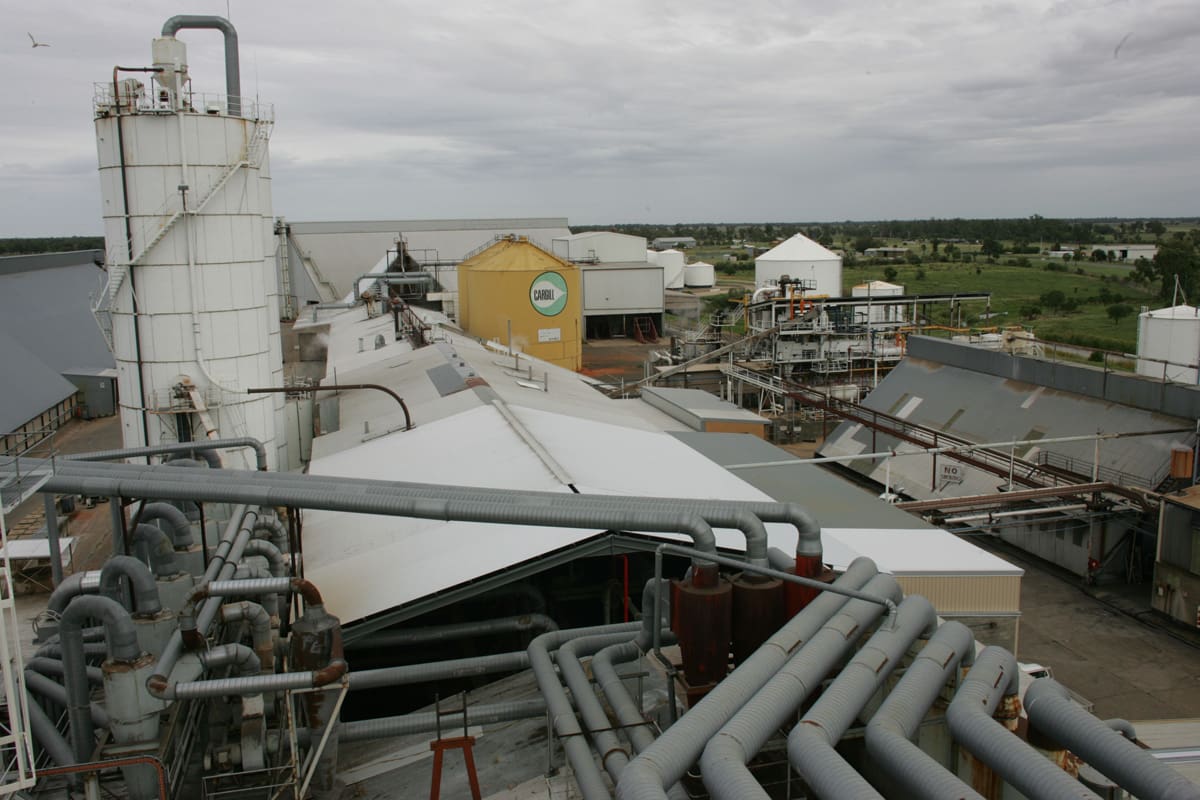AUSTRALIA’S biggest cottonseed crusher, Cargill, says a scarcity of whole cottonseed means it is unable to crush enough cottonseed to produce the hulls and meal the stockfeed market is demanding amid widespread drought conditions.

Cargill’s Narrabri crush plant.
However, in a statement to Grain Central on Friday, the company stopped short of directly responding to the question of whether it was planning to stop crushing cottonseed, as has been rumoured in recent days.
Trade sources said merchants selling cottonseed meal out of Cargill’s crush plant at Narrabri had been advising customers for some weeks that Cargill was unable to offer meal, which was believed to have led to speculation the facility would soon stop crushing cottonseed.
This is fuelling supply concerns for specialist livestock feeders, who have been using cottonseed meal and hulls in their feed rations.
“We are not crushing the volumes the market demands, or indeed, we would like,” Cargill director of corporate affairs, Peter McBride, told Grain Central.
He attributed low liquidity in the cottonseed market to farmers and ginners holding on to their cottonseed due to drought.
Meanwhile, a smaller operator, Australian Oilseeds, said it was operating its plant at Hillston in southern NSW at full capacity to try to satisfy, and was expanding its crush capacity.
“We increased our capacity 30 per cent a month ago, and by the end of the year we will have doubled the capacity we had at 1 July,” Australian Oilseeds principal, Pavan Cheema, said.
“At present we are fully committed and unfortunately cannot take any more orders.”
Source of roughage
Whole white fluffy cottonseed is the full package for many people feeding livestock.
While it does contain protein and oil for energy, its chief benefit is that it contains plenty of roughage in a form that is readily usable in the paddock.
Cottonseed is better value to most graziers in its natural form than meal or hulls.
Ease-of-use and the dire shortage of fodder, evidenced by tightness in the hay market were major contributors to the rapid rise in the price of cottonseed this winter.
Picking of Australia’s 2018 cotton crop is now over, and has produced one million tonnes of cottonseed, which has had limited export options due to China not being in the market.
While prices for whole white cottonseed had been expected to remain in the doldrums prior to the start of ginning, prices shot up as whole fluffy white cottonseed became a staple of drought-feeding across Queensland and NSW.
This price has virtually doubled from around $300 per tonne early this year to $600/t now.
“As drought demand increased pressure on supply, consumers of the specialty high-value cottonseed meal need to look for alternatives,” one trader said.
Industry sources said while imported soybean meal was available, the supply of palm kernel meal was presently tight pending further imports.
Domino effect
According to traders, the crushers stopped offering cottonseed meal early this season soon after the start of ginning in April, and the offers of canola meal stopped soon after that.
One trader described it as a domino effect, with demand peaking as users switched over from cottonseed meal, and as the dry weather took hold.
Some new-crop canola meal business was done, though further meal offers were withdrawn when canola sales from farmers dried up.
“Farmers stopped selling canola when conditions turned dry and right now, they’re not rushing to sell any canola they own, nor forward selling crops they might be trying to grow for harvest in December.”
Eastern states crushers are said to be investigating the possibility of shipping Western Australian canola to the east.
Western Australian supply itself is believed to be heavily committed for export and traders said it was uncertain how much, if any, would be available to ship to eastern states.
Grain Central: Get our free daily cropping news straight to your inbox – Click here

HAVE YOUR SAY